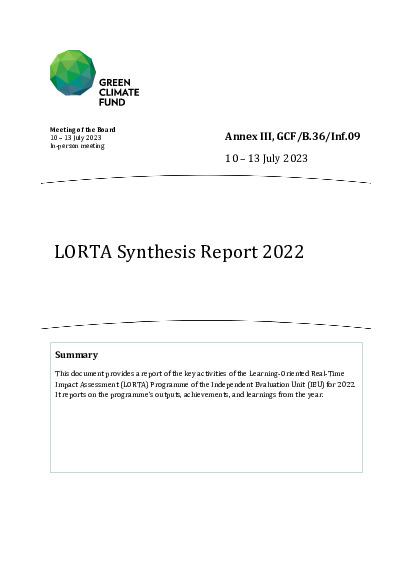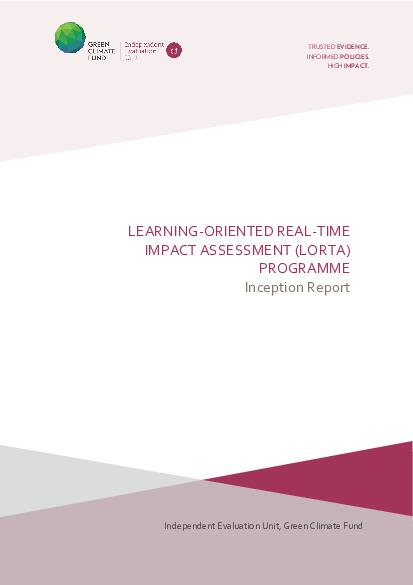FP035
Climate Information Services for Resilient Development in Vanuatu (Van-KIRAP)
Climate Information Services for Resilient Development in Vanuatu (Van-KIRAP)
This impact evaluation looks at the installation of climate infrastructure and the repackaging and dissemination of climate information to end-users, two interventions which make up sub-components of GCF project FP035. The project and LORTA team members chose these learning objectives during a series of workshops analysing the Theories of Change and assessment feasibility.
-
TopicEarly warning system (EWS) & climate information services
-
Project componentInstallation of climate infrastructure and the repackaging and dissemination of climate information to end-users
-
Impact evaluation designTo be determined
-
Target beneficiaries47,801 women will benefit directly and 95,601 indirectly from increased resilience
Timeline
Onboarded to LORTA
Jun 2018
Baseline data collected
Nov 2022
Baseline report to be published
Jun 2024
Endline data to be collected
Jul 2024
Endline report to be published
Mar 2025
One region
- Asia-Pacific
One country
- Vanuatu
Reports

LORTA Synthesis Report 2022
19 Jun 2023
This document provides a report of the key activities of the LORTA Programme for 2022. It is Annex III of a report of the key activities of the Independent Evaluation Unit (IEU) for the period of 1 January to 30 April 2023. It reports on the IEU’s outputs and achievements in line with its Board-approved work plan for 2023.

LORTA Inception Workshop 2018
04 Dec 2018
This report introduces the Learning-Oriented Real-Time Impact Assessment (LORTA) programme, initiated by the Independent Evaluation Unit (IEU) of the Green Climate Fund (GCF). The LORTA programme aims to embed real-time impact evaluations into GCF projects to measure their effectiveness and enhance learning. It includes outcomes from the design workshop held in Bangkok, Thailand, project selection criteria, and an implementation timeline.
Impact
Early findings from LORTA's baseline data collection for FP035 are expected to be released later this year.
To be shared at a later date.
To be shared at a later date.
Details
Vanuatu is one of the most vulnerable countries to climate impacts, including climate-related natural disasters and the effects of slow-onset events such as sea-level rise and ocean acidification. While Vanuatu’s geographic location leaves it highly exposed to cyclones, more than 90 per cent of its infrastructure, measured in economic terms, is located 500m from the coastline. The Government of Vanuatu has identified the need to be able to undertake systematic efforts to inform and prepare its public to manage expected climate changes.
This project will help address this need by achieving a paradigm shift to standardize the use of science-based climate information. This is seen as a necessary base to underpin awareness-raising and long-term policy planning around climate change. This project will expand the use of Climate Information Services (CIS) in five targeted sectors: tourism, agriculture, infrastructure, water management and fisheries. Specific project goals include building technical capacity to harness and manage climate data, developing practical CIS tools, fostering their use, and disseminating tailored climate information.
Caption: Theory of Change for the Doppler radar technology
LORTA’s impact assessment focuses on evaluating the installation of climate infrastructure, specifically the Doppler radar, and the repackaging and dissemination of climate information to end-users, which cover several sub-components of GCF project FP035.